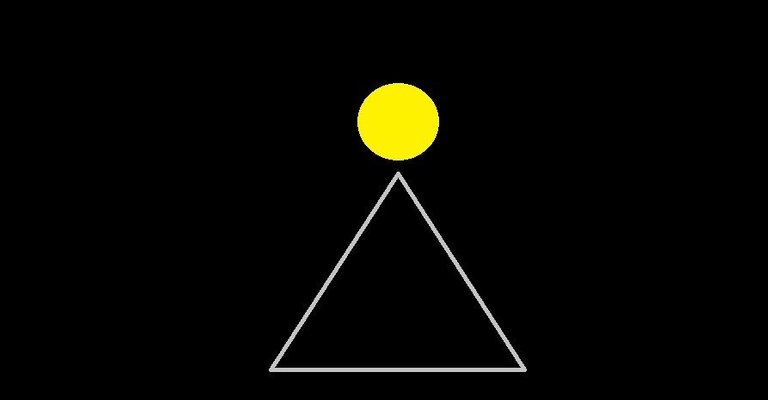I have a memory from my childhood. I'm not sure exactly how old I was, certainly less than ten and probably closer to five. I was standing in the garden of my home imagining a ball balanced on top of a triangle. But it wasn't balanced, eventually the ball would have to fall to one side or the other. Even if the ball began exactly in the middle--no, not "even", it was precisely because the ball began in the middle that something must cause it to fall one way or the other. Some force must cause this; the wind, perhaps. At this moment I made an isomorphic link between the image of the ball on top of the triangle to every event in existence being predetermined, including our thoughts. Of course I did not have the vocabulary to describe this epiphany at the time, although I certainly tried (in vain) to tell my mother what I had discovered.

It would be many years before I discovered philosophy and the concept of Determinism. It would be years again until I discovered Bell's theorem. The latter and its importance in the determinism debate is a topic for another day.
So, let's skip forward to more than a decade later. At the time I was conversing predominantly with people who subscribed to the philosophy of Ayn Rand: Objectivism. As is par for the course, each of these individuals considered themselves to be an unrecognised genius held back by the vices of our society. It would be beyond the scope of this post to go into the topic of Objectivism but for those who are unfamiliar with it, it is necessary to mention that Objectivism holds free will to be true. After all, through introspection we can observe the choice making process in our own minds.
I had a number of debates with these advocates of free will during that time. The main point of contention between free will and determinism is this: free will is the ability choose--or that it would have been possible to choose otherwise--, whereas determinism describes a causal chain where every action has a predictable outcome and thus "choice" is an illusion and the outcome was inevitable.
Initially, I was on the side of determinism. I still had that clear image of the ball from when I was a child. By that time I was also armed with quotes from Einstein ensuring me that God was probably not a fan of Craps (while being ignorant of some wider context of the quotes I was reciting). Over time however my position began to change. It was not that I had come to doubt my stalwart symbol of mechanics, but rather that I had started to perceive cracks in the dichotomy itself.
So, a deterministic universe in which all outcomes are certain precludes the notion of free will. Well what if we entertain for a moment the absurd notion that some outcomes are uncertain, does that imply free will? "No", was the conclusion that I came to. If you take a pseudo-random event like the rolling of a die, it cannot be said that the outcome was willed, on the contrary it is considered completely outside of our control. It occurred to me then that a universe in which outcomes are random or "uncertain" has even less room for free will than one in which outcomes are predetermined.
The question "could it have been otherwise?", while unanswered, becomes irrelevant to the idea of free will as clearly uncertainty does not imply control.
This begs us to reevaluate the question "what is free will?". The answer now seemed to me that it is not a question of whether events are predetermined or uncertain, but rather that for free will to exist, it must be determined by the self. And this is where our titular dog makes his debut.
What is the self that makes choices? Does it exist outside of the universe? If we agree that the self exists within the universe and is a part of the universe, then the duality between determiner and determinee evaporates because the self that acts is continuous with the forces that create it. Someone who asks whether their actions are caused by themselves or by the universe is like a dog chasing its own tail.
This does not answer the question of whether or not we have free will, nor does it answer the question of determinism. Rather it implies that the "free will vs determinism" debate is based on a false dichotomy. The extension of this is that it may be more fruitful to explore each of these topics separately.
Congratulations @seethefnords! You received a personal award!
You can view your badges on your Steem Board and compare to others on the Steem Ranking
Do not miss the last post from @steemitboard:
Vote for @Steemitboard as a witness to get one more award and increased upvotes!
Congratulations @seethefnords! You received a personal award!
Click here to view your Board